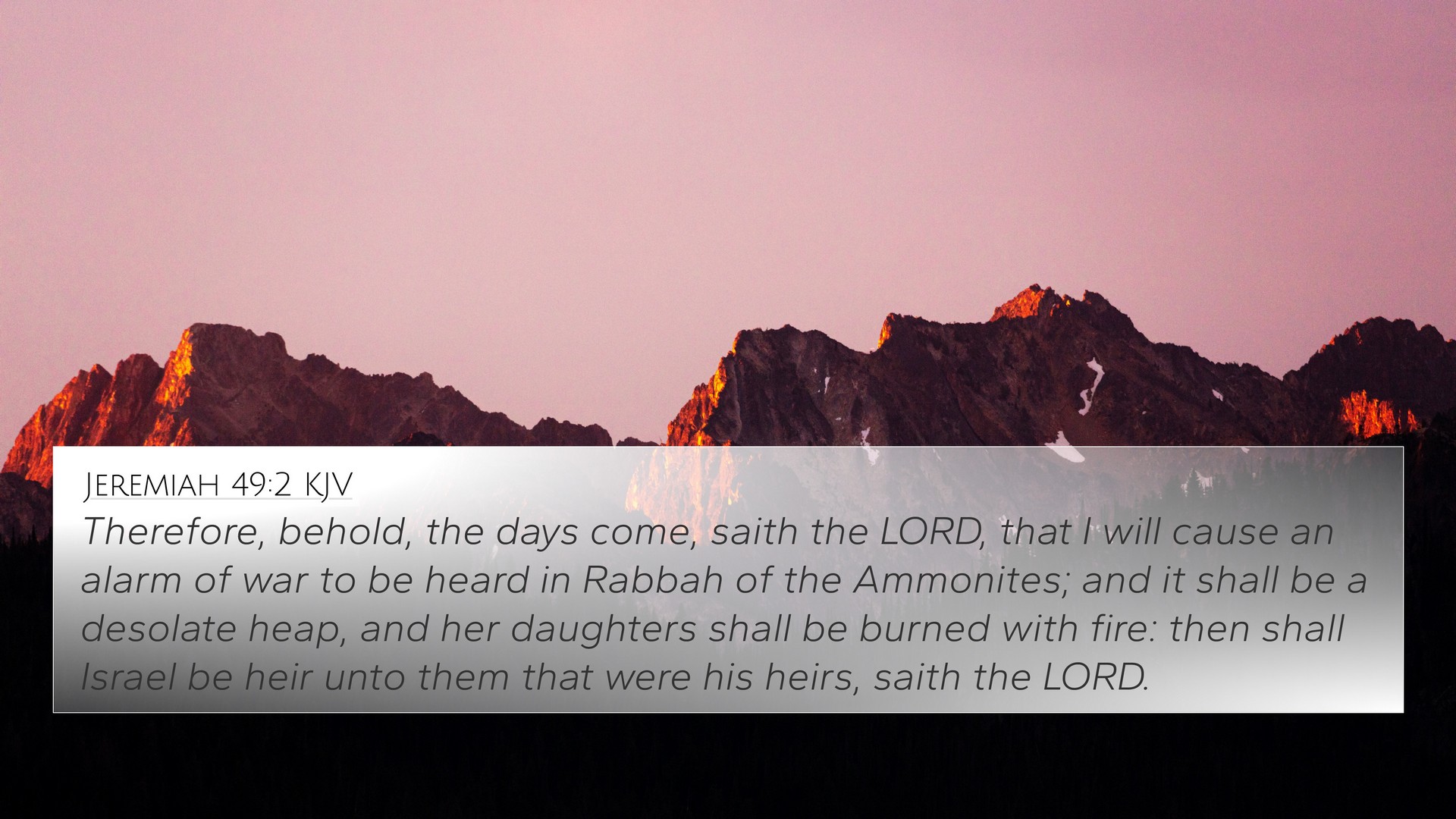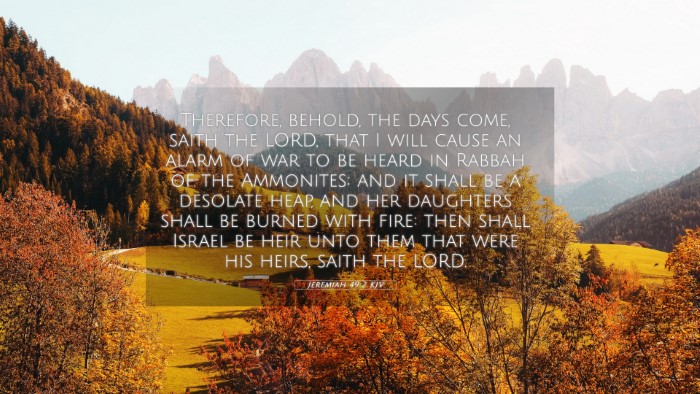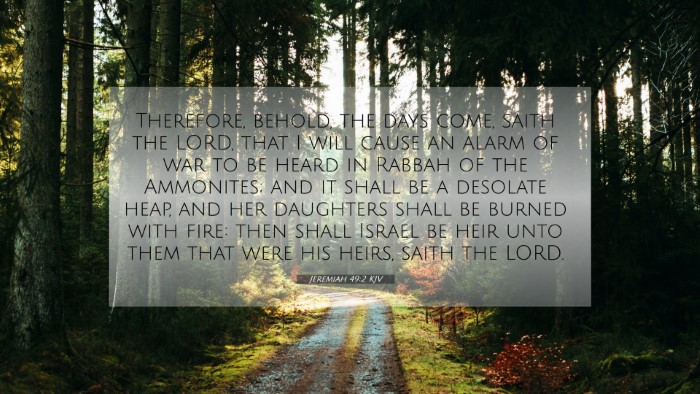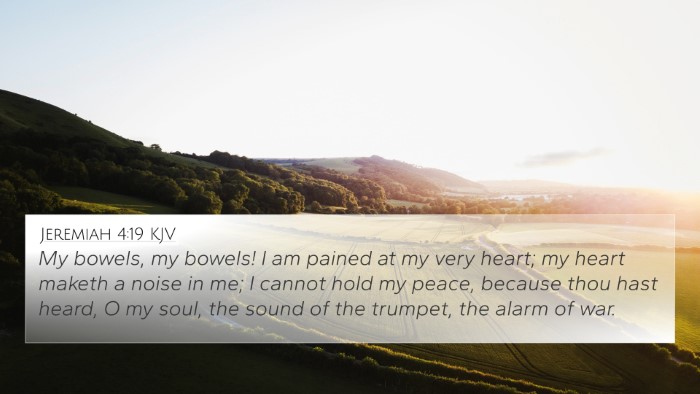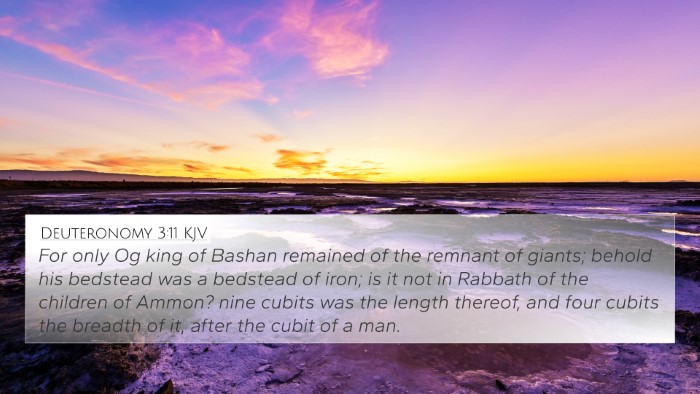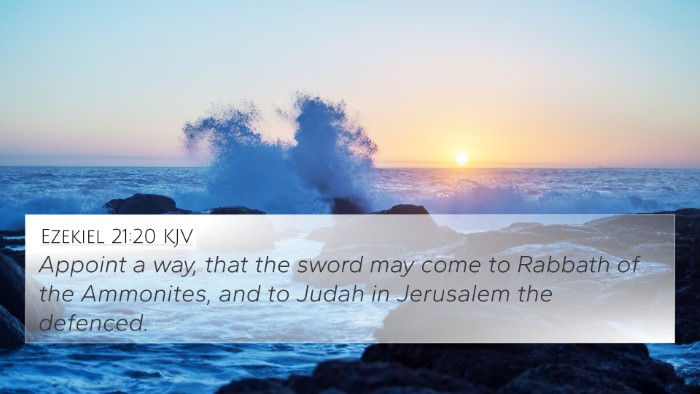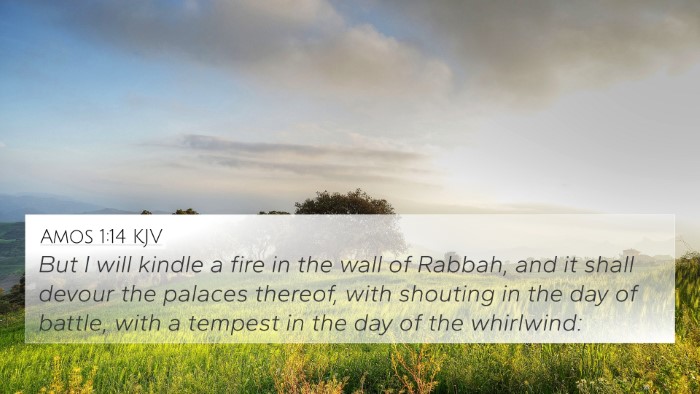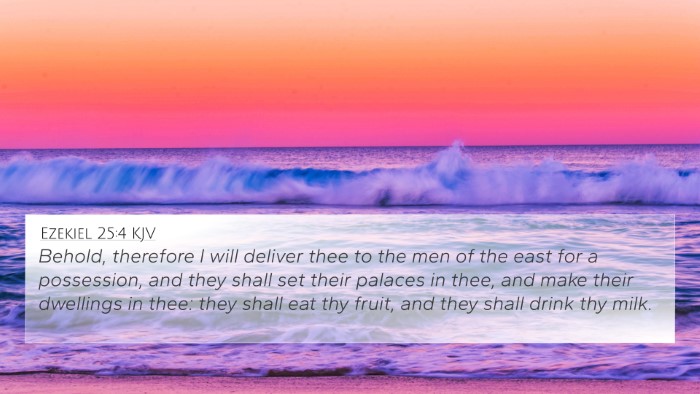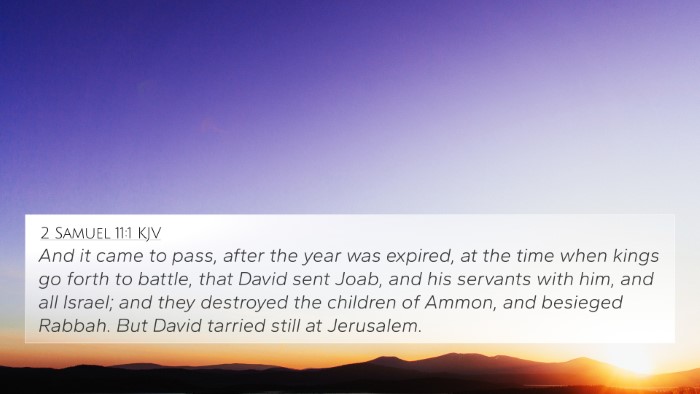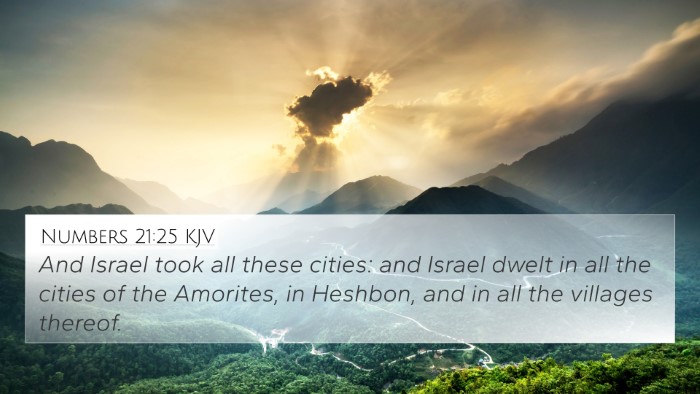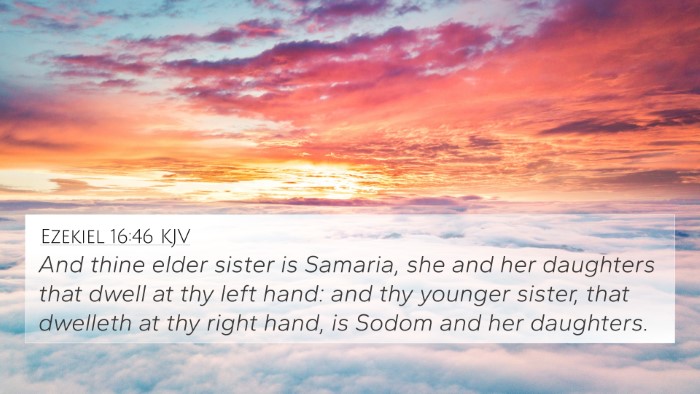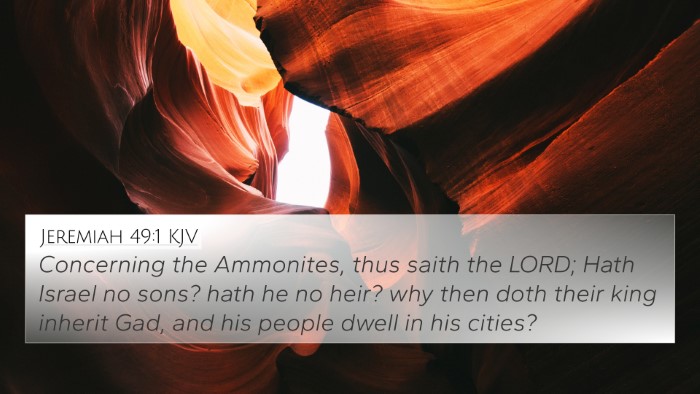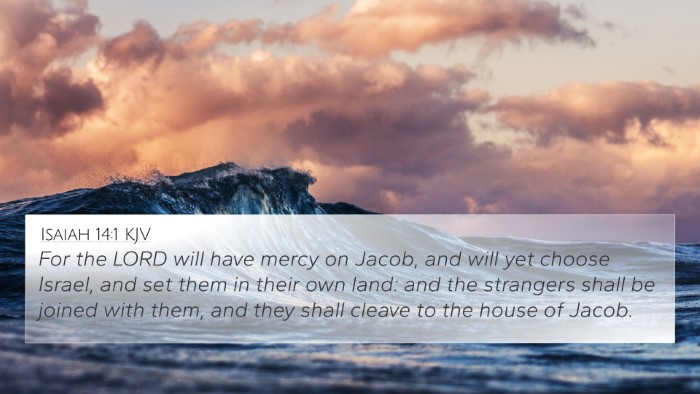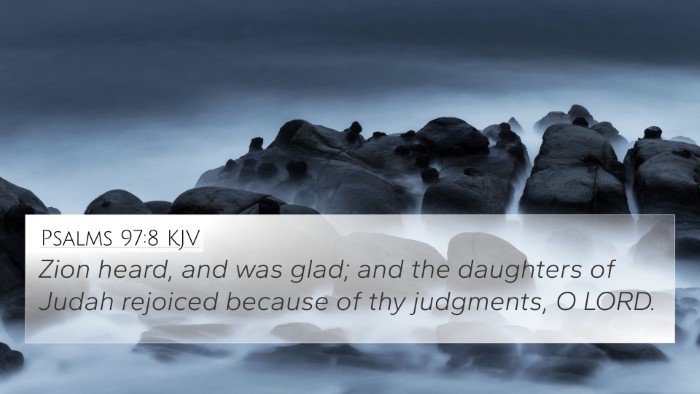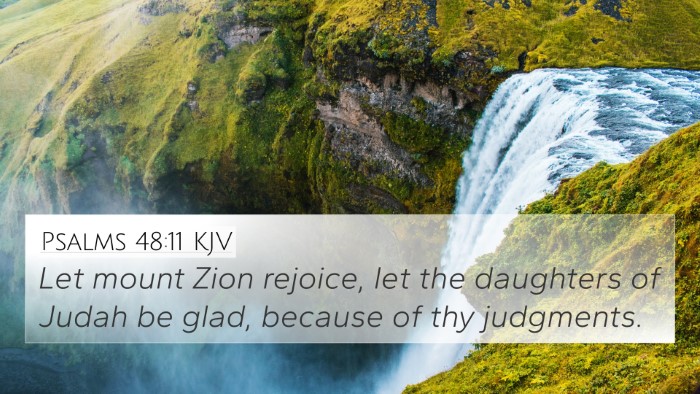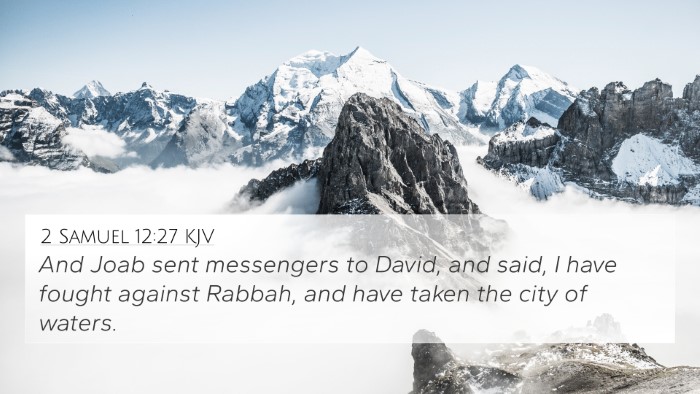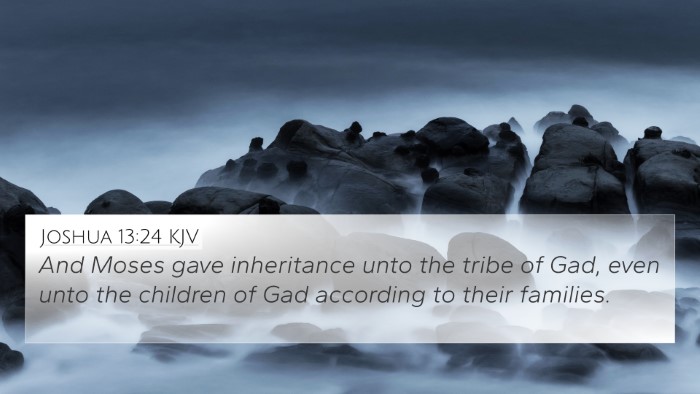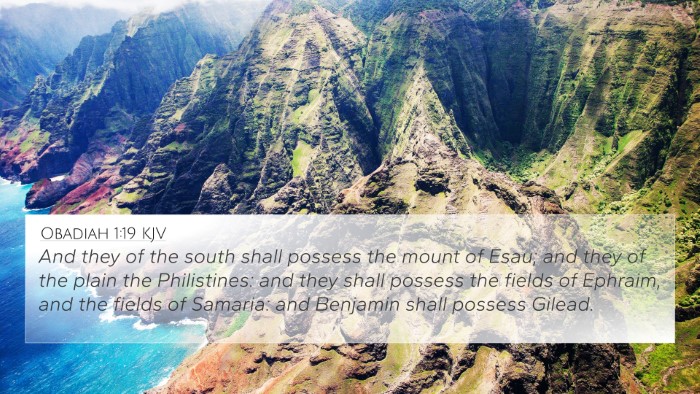Understanding Jeremiah 49:2
Jeremiah 49:2 states: "Therefore behold, the days come, saith the Lord, that I will cause an alarm of war to be heard in Rabbah of the Ammonites; and it shall be a desolate heap, and her daughters shall be burned with fire: then shall Israel be heir unto them that were his heirs, saith the Lord." This verse serves as a prophecy regarding the destruction of the Ammonites and the subsequent inheritance of their lands by Israel.
Meaning and Context
The context of this verse centers on God’s judgment against the nations surrounding Israel, particularly the Ammonites, who have been at odds with God's people. It signals the impending war which would render the city of Rabbah, the capital of Ammon, desolate.
- Matthew Henry's Commentary: Highlights the destruction that will come upon the Ammonites, symbolized by a war alarm. This destruction is a consequence of their opposition to Israel and God’s plan.
- Albert Barnes' Notes: Emphasizes the certainty of this prophecy. He notes that the judgment will lead to Israel gaining control over the Ammonite territories, indicating a reversal of fortunes.
- Adam Clarke's Commentary: Points to the metaphorical implications of the "daughters" being burned. It indicates complete destruction and the end of the Ammonite lineage and glory.
Thematic Connections
Jeremiah 49:2 offers an important thematic connection to various biblical motifs such as divine judgment, restoration, and inheritance in biblical texts. This can be explored through comparative verse analysis:
- Isaiah 17:1: Prophecies regarding Damascus’ destruction, relating to God’s judgment on nations.
- Ezekiel 25:1-7: Addresses judgments against Ammon for their hostility towards Israel.
- Zephaniah 2:8-9: A call to judgment against the descendants of Moab and Ammon.
- Deuteronomy 2:19: Refers to the lands that God had allotted to Israel, emphasizing their inheritance.
- Jeremiah 48:1: The prophecy against Moab, providing a comparative standpoint on neighboring nations.
- Amos 1:13-15: Discusses the sins of the Ammonites justified by God’s subsequent judgment.
- Micah 5:6: Speaks of Israel’s future dominance over their enemies.
Cross-Referencing Biblical Texts
Utilizing tools for Bible cross-referencing helps uncover the thematic threads that interconnect these verses. Systematic study can reveal deeper insights into God’s plan throughout scripture.
How to Use Cross-References
When examining Jeremiah 49:2, consider these methods:
- Use a bible concordance to find related themes or terms.
- Employ a bible cross-reference guide to identify links between disparate scripture.
- Engage in cross-referencing Bible studies to build an understanding of how various biblical narratives support one another.
- Explore bible reference resources to draw connections between Old Testament prophecies and New Testament fulfillments.
Conclusion
Understanding Jeremiah 49:2 through the lens of public domain commentaries reveals God’s consistent engagement with Israel and their enemies. This prophetic message not only underscores the certainty of divine judgment but also highlights God's faithfulness to Israel through their inheritance. Scholars and readers alike can significantly benefit from using comprehensive bible cross-reference materials to facilitate a richer understanding of scripture.
Further Reflection
Engaging in cross-referencing can help clarify complex themes and enhance one's appreciation for the interconnectedness of scripture. As you study Jeremiah 49:2, consider the highlighted cross-references and explore additional related verses that further illuminate the prophetic literature of the Old Testament.
